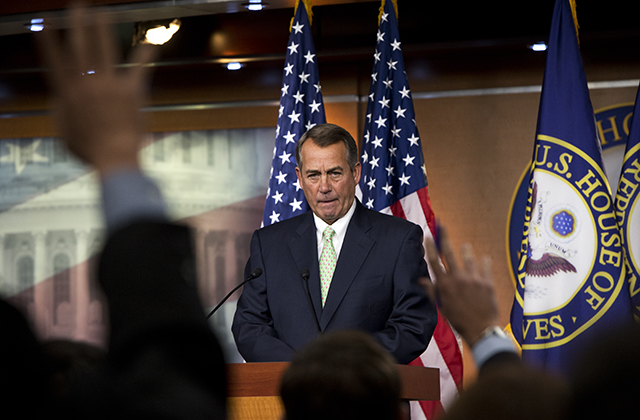Lame Duck: A Slush Fund for Special Interests and Cronyism
Mike Needham /
“Experience has shown that this [lame-duck session] brings about a very undesirable legislative condition. . . . The result is a congested condition that brings about either no legislation or ill-considered legislation.”
Much has changed since the Senate Judiciary Committee wrote those words in 1932, including the ratification of the 20th Amendment, which shortened the lame-duck period from four months to two. But post-election legislative sessions still represent a problem for our democracy.
Lawmakers and staffers “on their way out the door” are acting on the worst possible incentives to secure policies favorable to prospective clients on K Street.
Yesterday, House Speaker John Boehner made the same argument in simpler language regarding a potential lame-duck vote on a wide-ranging authorization for use of military force related to Syria and the Islamic State: “Doing this with a whole group of members who are on their way out the door, I don’t think that is the right way to handle this,” he said. His logic extends to a number of important issues that appear likely to come to a head after the election.
Lobbyists are pushing Congress to approve a long-stalled and controversial tax on Internet sales after the election. Such a scheme would place onerous compliance burdens on small businesses in our economy’s most vibrant sector and stifle the sort of tax competition among the states that generates growth and opportunity.
So-called “tax extenders” are the worst of congressional politics—a grab-bag of tax carve-outs approved as a block every couple of years. This massive package allows special interests to hide their pet projects (think Broadway play subsidies and green energy pork) amongst otherwise desirable tax policy.
More than any of the other issues likely to be considered during a lame-duck session, these two reek of cronyism. Lawmakers and staffers “on their way out the door” are acting on the worst possible incentives to secure policies favorable to prospective clients on K Street. That’s a recipe for policy disaster—unless Americans remain vigilant.
Lame duck has a long history of being used to reward politically connected entities. In November 1922, for example, President Warren Harding called on Congress to pass a subsidy for shipbuilders. He did so knowing voters had rejected supporters of the program en masse merely weeks prior.
Many more threats remain in a lame duck, including the potential ratification of a United Nations disabilities treaty the Senate rejected just last year. Many lobbyists believe chances for ratification are better now as retiring and defeated senators are free to flip-flop because they no longer have to face voters.
There is arguably one bill that must be passed during the post-election session: a government funding measure. Since 2000, lame-duck sessions have become common, as lawmakers have been loath to complete the people’s business in a timely fashion. After a five-week vacation, Congress punted last week on this crucial issue to free up calendars for nearly seven weeks of campaigning. Thus, the government funding bill is likely to take the form of a 1,000-page omnibus measure that is riddled with special-interest carve-outs. And given the sheer volume of pages and compressed time frame, it is almost certain no one will read the entire bill.
Heritage Action rejects the argument that Republicans simply need to “clear the deck” in a lame-duck session by addressing these messy issues in partnership with a Democratic Senate to prevent the incoming Republican-controlled Congress from being tarred for passing unpopular policies in its first days in office.
Think of the tortured logic: To argue unsound policy passed behind closed doors is preferable to conservative policy enacted under one-party control, one first must assume that politics trump policy. That sort of thinking is the reason we still have lame-duck sessions today and why those sessions demonstrate everything that is wrong with Washington.

